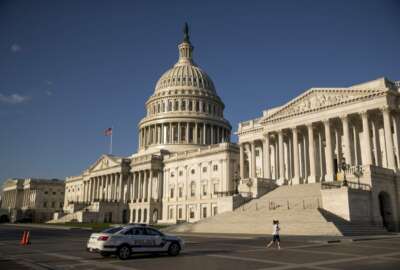
Born in the USA — a cure?
How to balance profit motive and public health is a big question the nation faces in a big way.
The nation stands at an “if we can put a man on the Moon” moment.
Through the cacophony of federal and various state responses to the pandemic, and the wrecking of the world’s most dynamic and productive economy, the hopeful ray of a vaccine shines through.
So fervently does the nation grasp that idea, that the stock markets rose on the news that a Cambridge, Massachusetts, company has seen positive results in initial trials of a COVID-19 vaccine. What happened for Moderna, Inc. was that doses of its vaccine produced antibodies in the test subjects. That’s good, even if it’s a long way from the magic wand people seem to think will make the danger evaporate.
Moderna — and I’m speaking only from having visited its website — specializes in discovering ways to use a biologic called messenger RNA to fashion new types of medicines. I also found that the Wikipedia article on mRNA was modified only last Thursday. So somethin’s goin’ on — something made in America.
Maybe that’s the biggest problem with the pandemic: Loss of faith in American institutions, and in American ingenuity.
It’s become cliche to talk about how everything seems to be made in China — our iPhones, the motherboards in our computers, the viruses that come ’round every so often.

The item I’m holding in my hand in the picture at the right would seem like the most typical made-in-China thing. It’s an injection molded, plastic funnel just for pouring oil into a certain opening on a made-in-America Harley-Davidson motorcycle. But molded into the orange plastic are the words, “MADE IN USA.” When I removed it from the box it shipped in, I thought, well I’ll be darned. There’s hope!
Now making a vaccine for billions of people to use from knowledge of mRNA — that’s several orders of magnitude more difficult than making a funnel from 25 cents worth of plastic, and selling it for $10.95. Both strike me as American: Wanting to be of real value and making money while doing it. One might be in the domain of fun and recreation, the other in the domain of national expediency. But they share the same instinct.
As an aside, federal program and IT people should check out Moderna’s digital strategy. The company bridges its science and its IT approach. Ray Kurzweil has said genetics and biotechnology are information technologies. Moderna seems to embody this idea.
The level of research and science going on in biotech transcends national boundaries. Scientists, at their best, share and debate findings with peers defined by domain expertise, not nationality. The U.S. also has a system that, through constitutional, legal, cultural, and business norms, lets people profit when they apply science to create an invention.
The government, as the instrument of the people, has a stake in how companies use inventions of great import, such as a cure for a pandemic affliction. A vaccine for COVID-19 in that sense isn’t like the plastic funnel. Therefore the question for the political class and for the government that carries out policy, is how a company developing a successful vaccine could earn the return it deserves while ensuring the cure is available to everyone who needs it.
Suppose it costs a company a billion dollars to develop and test a vaccine. Just to get paid back with no profit would mean every American would need to pay about $3 for one dose. The HEROES Act the House passed on party lines would have given more than $8 billion to the Department of Health and Human Services’ agencies for vaccine research. That doesn’t take into account the cost of making 350 million doses, or 700 million if everyone needs two. Maybe the real cost is $30 each. Most people could swing that, but not everyone.
The House bill would also have zero out-of-pocket costs for COVID-19 treatment for those on Medicare, TRICARE, Department of Veterans Affairs care, Federal Employee Health Benefits Programs, and for pretty much everyone in a private health insurance plan.
Who would pay for a made-in-America cure? And what is the right price? These are tough questions the nation needs to get right if it wants to encourage made-here.
Copyright © 2025 Federal News Network. All rights reserved. This website is not intended for users located within the European Economic Area.
Tom Temin is host of the Federal Drive and has been providing insight on federal technology and management issues for more than 30 years.
Follow @tteminWFED






